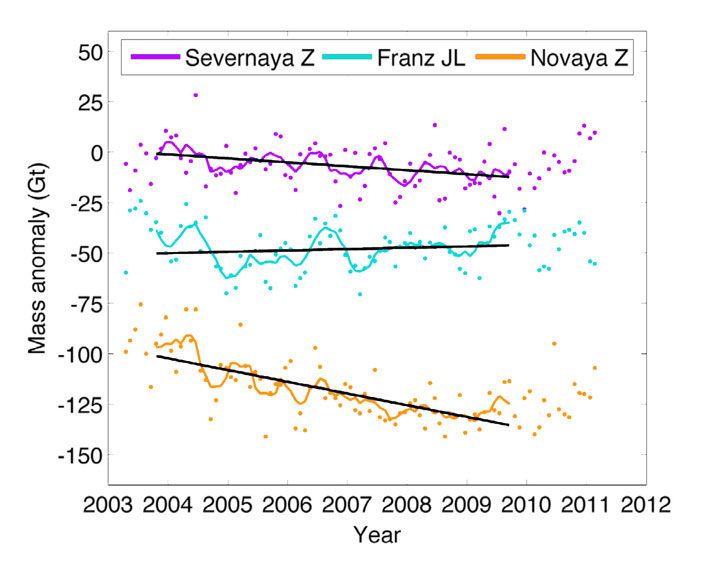Reference
Moholdt, G., Wouters, B. and Gardner, A.S. 2012. Recent mass changes of glaciers in the Russian High Arctic. Geophysical Research Letters 39: 10.1029/2012GL051466.
Background
The authors remind us that "there are still glaciated regions where little is known about modern changes in glacier mass," noting that one of these regions is the Russian High Arctic, which has a total glaciated area of 51,500 km2. And, therefore, they proceed to do something about this data deficiency.
What was done
The three researchers explain that they "used data from the Ice, Cloud and land Elevation Satellite (ICESat) and the GRACE gravity satellites to assess the glacier mass budget between October 2003 and October 2009 for the three main archipelagos in the Russian Arctic: Franz Josef Land, Severnaya Zemlya and Novaya Zemlya," which results they "augmented with meteorological data from 1980 to 2009 in order to place the recent mass budget estimates into a longer-term climatic perspective."
What was learned
Results obtained from the GRACE endeavor are presented in the figure below.

Figure 1. Monthly glacier mass anomalies (dots) as determined from GRACE, where colored curves are 5-month running means of monthly data and black lines are linear fits to the monthly data within the ICESat period of October 2003-October 2009. Adapted from Moholdt et al.
As can be seen from this figure, most glacier mass loss has occurred on Novaya Zemlya, while there has been but little net change at the other two locations. In addition, Moholdt et al. note that the "meteorological records of temperature and precipitation suggest that the climatic mass budget rate in 2004-2009 was not substantially different from the 1980-2009 period." And when one looks at the last one-and-a-half to two years of the three records, it appears that at least two of them have actually been trending upwards most recently.
What it means
For the part of the world that is claimed by climate alarmists to be warming faster than almost any other place on earth - except, perhaps, the Antarctic Peninsula - it is indeed interesting to see that the glaciers of the Russian High Arctic are not wasting away before our very eyes.




